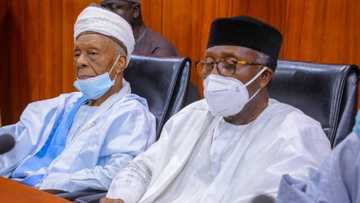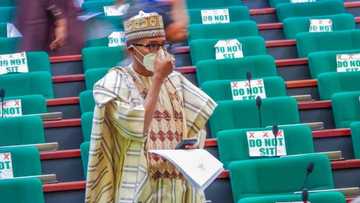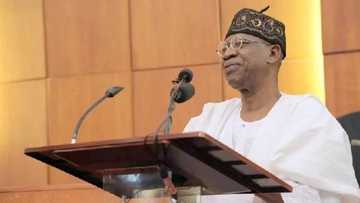How #Twitterban, Koo emergence can allow Nigeria to explore its tech space among other benefits (Analysis)
The Nigerian government on Saturday, June 5, officially banned Twitter, a microblogging platform, from operating in the country following its seemingly impulsive removal of President Muhammadu Buhari’s controversial tweet.
PAY ATTENTION: Legit.ng is on a mission to support vulnerable children of Calabar – join the initiative on Patreon, let’s change more lives together!
Irked by the wanton destruction, killings and attacks on security operatives in the southeast and south-south regions of the country, the president, a former military head of state and self-styled democrat had threatened to treat some aggressive secessionists “in the language they understand.”
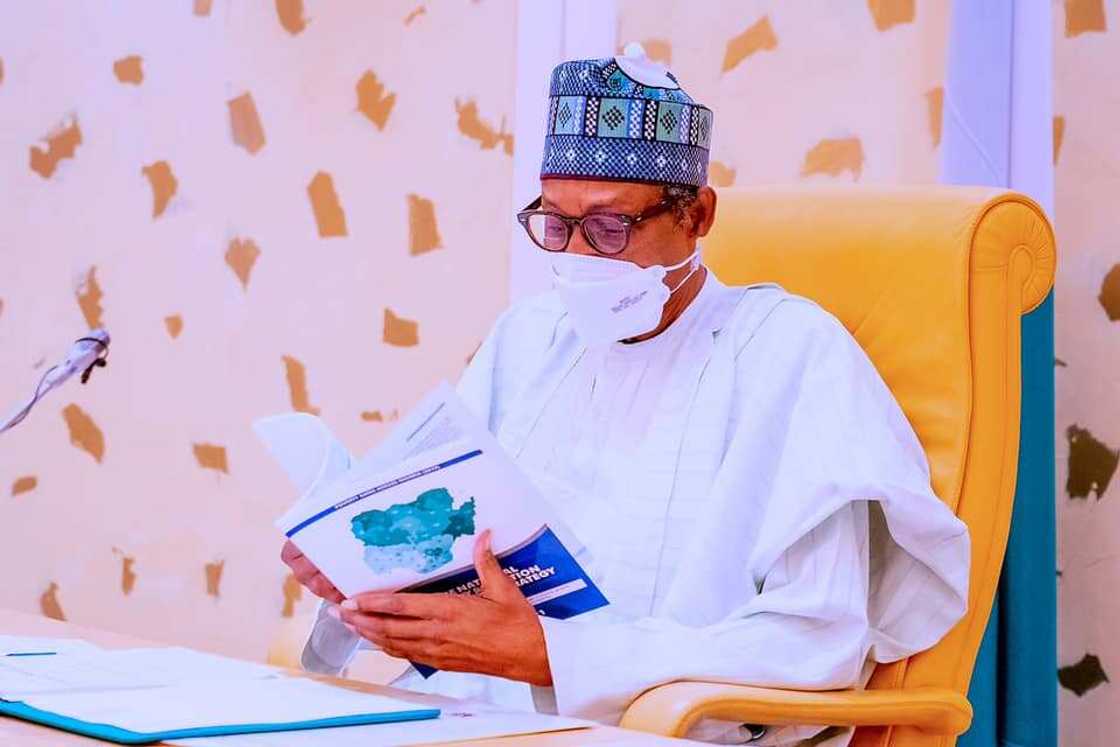
Source: Facebook
Buhari’s statement came amid mounting security threats across the country climaxed by the abduction of some students in both government colleges and university in Niger, Kaduna and Zamfara by bandits.
Controversial, as it was widely understood, the statement was trailed by a whirlpool of reactions, with a number of social media users on Twitter calling on Jack Dorsey, the CEO and founder of the platform to give “Buhari a Donald Trump treatment.”
Trump, a former US president, was suspended by Twitter after his tweet led to the attack on the Capitol amid grand delusions to overturn the victory of his predecessor, Joe Biden, in the November 3, 2020 election.
NBC sanction
In a subsequent move, the National Broadcasting Commission (NBC) ordered all the broadcast media in the country to suspend the use of Twitter “with immediate effect.”
This was contained in a statement issued by its former director-general, Armstrong Idachaba, on Monday, July 7.
Garba Shehu, a presidential aide, in a statement said “the removal of President Buhari’s tweet was disappointing.” He also claimed Twitter was not banned but temporarily suspended, citing that it is a place where “misinformation” trends, among other reasons.
However, in fierce defiance, Nigerians have continued to be using Twitter albeit with Virtual Private Network (VPN) - a connection that extends a private network across a public network and enables users to send and receive data across shared or public networks.
Enters Koo app
One of the reasons Twitter was banned - or “temporarily suspended” was because, as the minister of communication and culture, Lai Mohammed said, it was “capable of undermining the corporate existence of Nigeria.”
In a bid to cut down the intimidating influence of Twitter, Koo, an Indian micro-blogging app, was endorsed by the Nigerian presidency, with President Buhari leading the cart of his followers to the app.
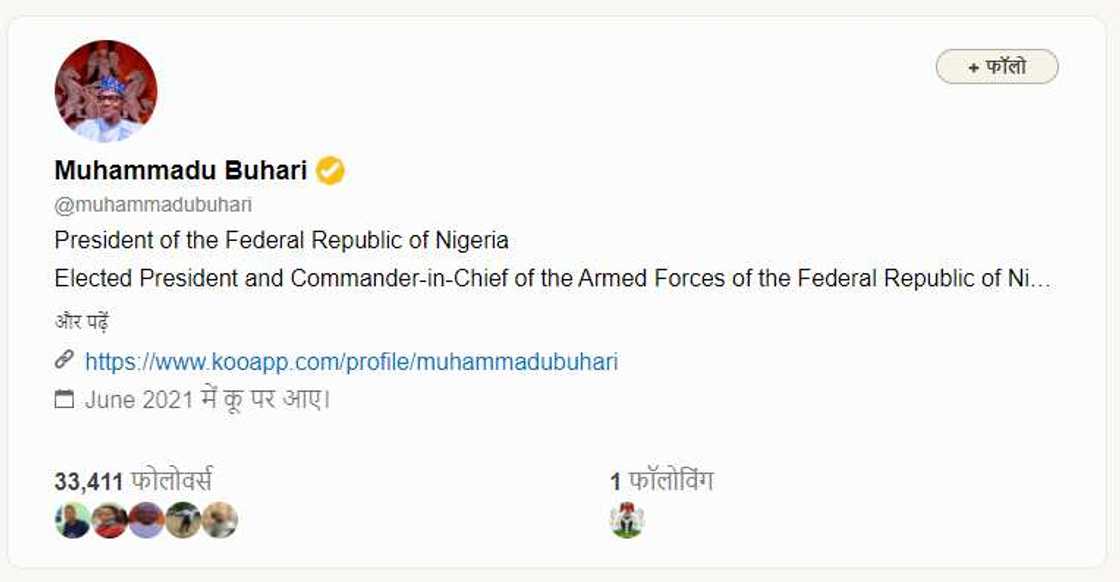
Source: UGC
Koo app itself is a product of revolt. It is borne out of the Indian government’s desire to submerge Twitter in the populous country after the platform was suspended in what appears to be a long deadlock emerging from a clash of interest.
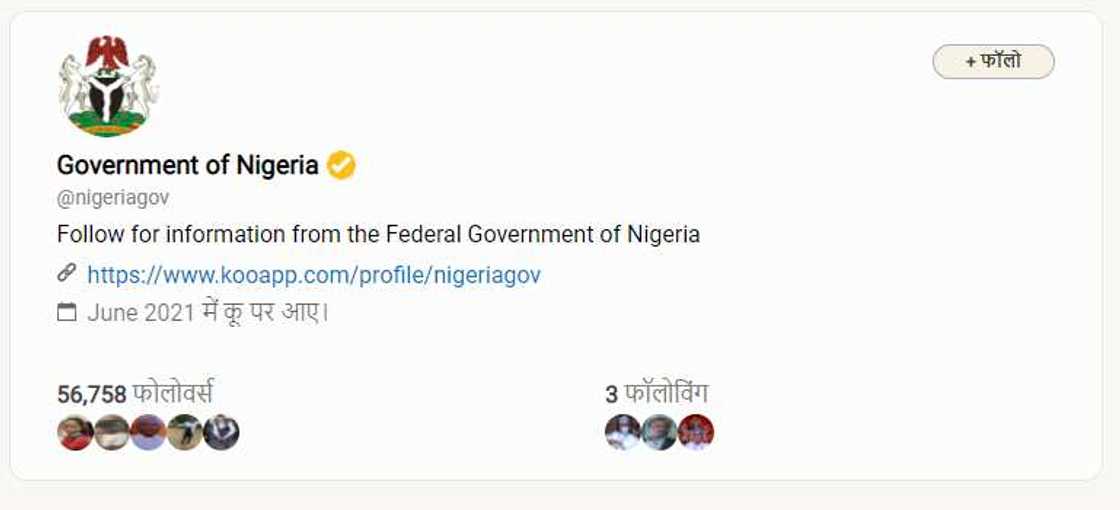
Source: UGC
The Nigerian government's endorsement of Koo, without any iota of doubt, represents a significant push in the app's journey to position itself as a genuine challenger to Twitter in the country.
This is because hundreds of Nigerians, mostly Buhari’s supporters, have joined the Koo app in solidarity with the presidency’s position on the Twitter ban.
On the other side of the trenches, social media influencers whose work were affected by the ban have refused to join the platform, describing it as an attempt to gag “free speech” and strengthen the government’s vocal desire to bring social media under control.
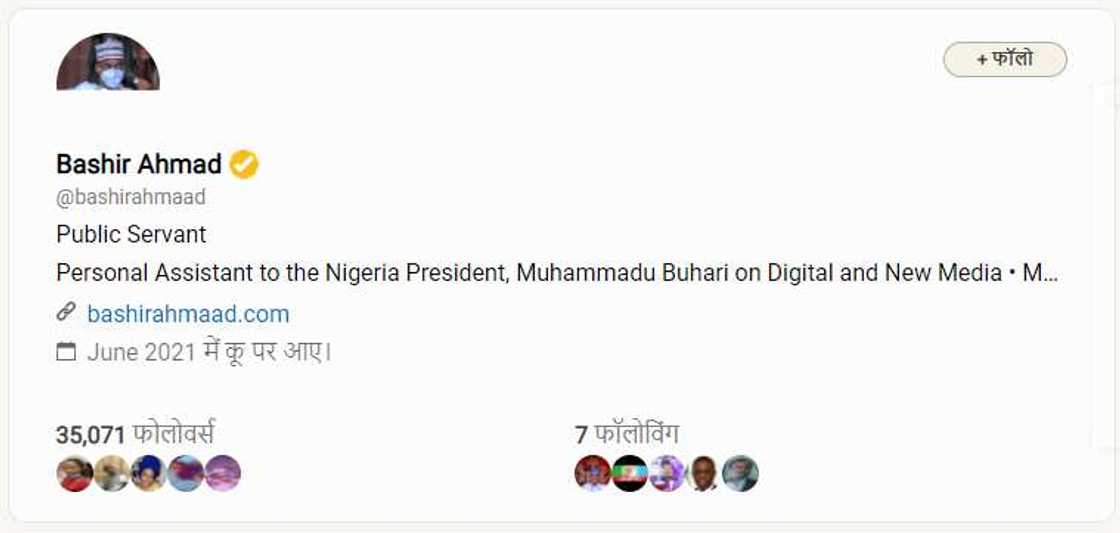
Source: UGC
Koo a blessing in disguise?
Although Koo may find it difficult to outmuscle Twitter on the Nigerian internet space, its presence has provided the country's social media users with a viable alternative of communication and expression of free speech.
Twitter, over time, has been the biggest platform that provides a voice for Nigerians who often checkmate the excess of the government.
With over 40 million active users, the platform not only provides jobs for Nigerians as social media managers and influencers, but also generates revenue into the purse of the government.
According to Netblocks, a data-driven web application that allows people to rapidly evaluate the economic cost of Internet outages, Nigeria has been losing money daily over the Twitter ban.
Between June 5 and 25 the government suspended Twitter operations, the country, according to Netblocks, has lost over $150m (approximately N54 billion).
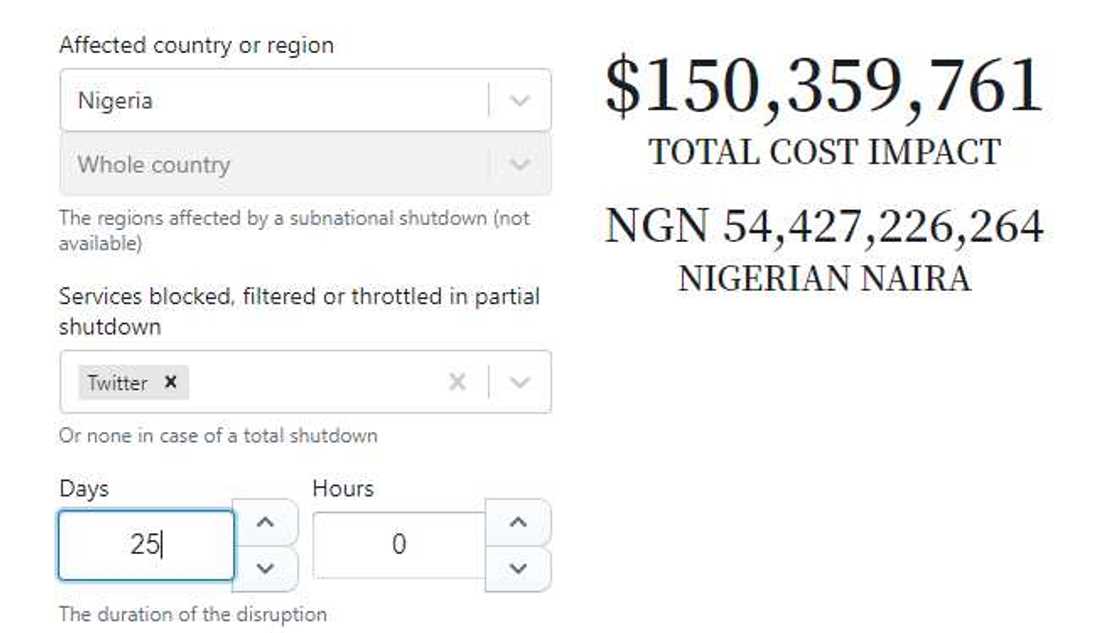
Source: UGC
Economically, this means if Nigeria can have a concentrated number of active social media users on Koo, more revenue will be generated into the country's purse.
Of the technological benefits, the Twitter ban and the presence of Koo has revitalised Nigeria's possibility of developing and exploring home-grown social media platforms that are basically Nigerian and capable of challenging the monopoly and hegemony of US-owned social media tech giants.
In India, Koo came in as a tool of revolt. It was initially fashioned in a user-friendly mode with an interactive interface to "deal with Twitter excess."
Now, it is a strong competitor, technically performing the same role. By the time the Indian government removes the ban on Twitter, its influence may have whittled down.
India is the second-most populous country in the world after China as Nigeria is the most populous in Africa. There is a striking similarity between the two nations in terms of numerical strength.
If Nigeria can use the avenue of the Twitter ban to create a home-grown alternative, it is going to be a step in the right direction for the country in terms of technological advancement.
Source: Legit.ng


